Aboriginal Cultural Services in Adelaide
We Specialise in Supporting
First Nations Australians
Nganana Inc. has a passion and considerable expertise supporting individuals from a culturally informed context, including Anangu First Nation Australians living in the Aṉangu Pitjantjatjara Yankunytjatjara (APY) Lands of South Australia.
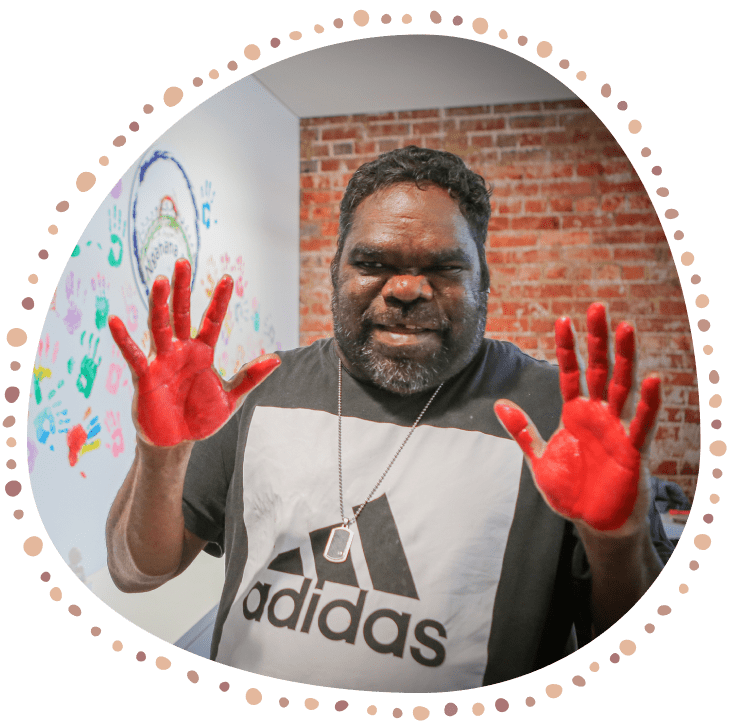
Aboriginal Mentoring
The role of the Aboriginal mentor is to facilitate service delivery between dis-engaged Aboriginal participants and providers of the NDIS and to develop an Aboriginal participants cultural identity, including networks with family and community members.
There are many people living with exceptional needs in the community, constantly in and out of disadvantage, drama, crisis, risk. Fortunately, some are eligible for NDIS services, those with intellectual disabilities and other cognitive impairments that result in them becoming extremely vulnerable in society. The problem is, given their cognitive impairments, vulnerabilities, and constant cycling in and out of crisis, cultural identity and family/community contacts can be fractured or lost.
Subsequently Aboriginal participants can become disengaged from their culture, and if they are disengaged from their culture, connection with government stakeholders is tenuous at best, and arguably will never develop to a functional level until cultural connections have first been addressed and work done to restore. For Aboriginal participants, and especially First Nation people living traditionally, connection and building of one’s cultural identify including family and community networks is absolutely essential. Mentoring is so much more than support work. Mentoring is a means of providing an Aboriginal participant living with complex needs with identity, family, advocacy and voice.
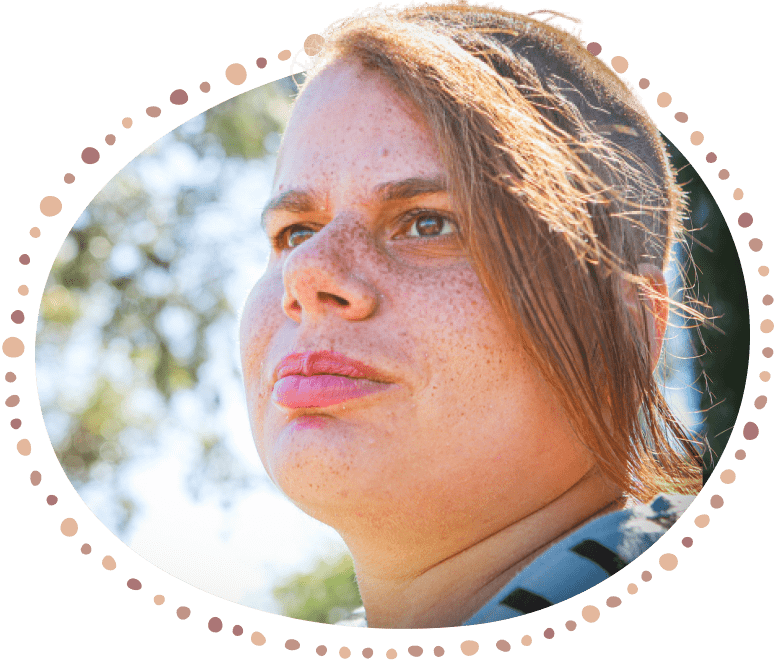
We Bring Culture Back
to Disability Services
Download our program to learn more about our commitment to culturally focused support services.
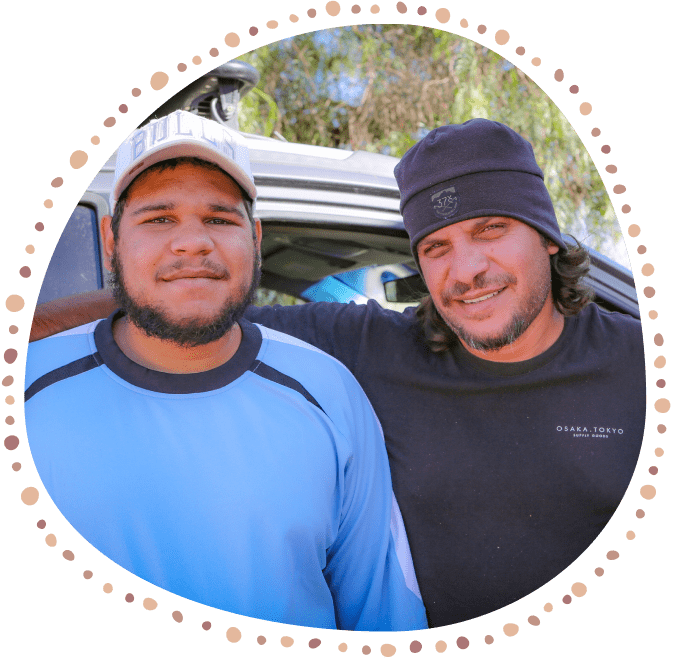
Aboriginal Cultural Liaise
Aboriginal Cultural Liaise is a service type that aligns itself with NDIS level two coordination. It is provided by Aboriginal coordination staff with significant lived and professional experience supporting vulnerable Aboriginal people to connect, network and build capability and independence within their community and society in general.
This is a service type that can be effectively used in conjunction with specialist support coordination, wherein the latter will struggle to engage with a vulnerable Aboriginal participant without the assistance of an Aboriginal level two coordinator who has the necessary ties with the community and understanding of key issues presenting as barriers to service delivery.
Cultural Counselling
Nganana utilises the services of Mr. Tod Stokes, a Torres Strait Islander man with over 10 years’ experience specialising in family violence and working with people of Culture.
Tod’s practice, Legacy Counselling and Consultancy, works with men supporting them to address issues impacting their lives. Tod is also Regional Director of the Collective Trauma Foundation, an organisation committed to working together to advance the treatment, research, and training in trauma.
Tod can be contacted directly for more information about his service offering.
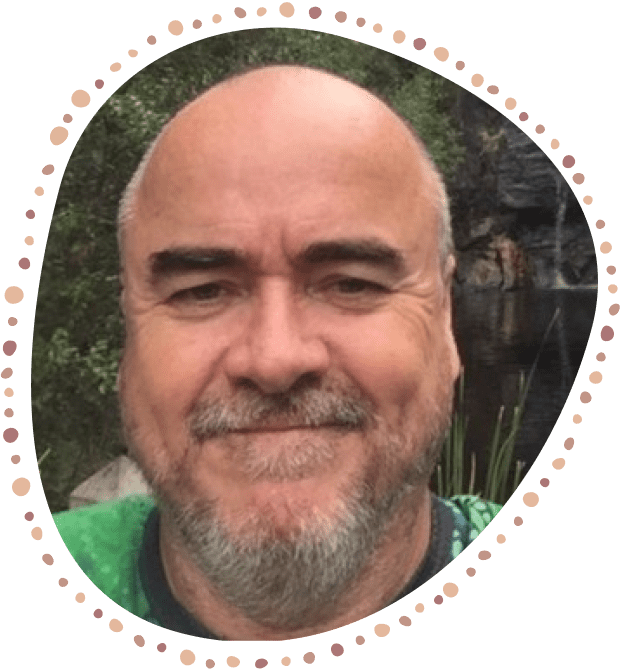

Cultural Planning
& Assessment
Under the National Disability Insurance Scheme every individual with complex needs and support coordination gets help to plan and manage their lives in accordance with the guiding principles of the NDIS. It is important that these principles (some of the most relevant are included below) are acknowledged and included in a participants plan from a culturally informed perspective. This is where Cultural Planning & Assessment comes into consideration.
Nganana Inc. is a non-profit organisation with a specialisation in supporting people with high and complex needs, including Aboriginal participants requiring responsive service delivery from a culturally sensitive perspective.
Cultural Assessment
The Cultural Assessment process takes a participant’s life as a cultural person within an Aboriginal context, within immediate family and within their community(ies).
Cultural Assessments incorporate the following areas of a persons life:
- Family
- Disability
- Identity
- Country / Nation
- Self Care
- Family Care
- Finances
- Good Supports (formal and informal)
- Concerns (risk factors)
Cultural Planning
The Cultural Planning process takes a participant’s NDIS plan and observes goals and objectives through a cultural lens. An additional narrative can then be formulated that honors cultural norms, needs, opportunities and future directions.
A Cultural Plan is broken down into sections:
- Self Care
- Family Concerns
- Financial Considerations
- My Good Supports
- Risks
Delivered by Ali Warrior
Nganana Inc. Cultural Planning is led and delivered by Ms Ali Warrior. In her own words;
I am a proud Indigenous woman, descendent of the Kokatha and Ngarrindjeri tribes of South Australia. I have a strong passion when it comes to supporting our Indigenous participants along with their families and communities, to help them understand and navigate the systems of the NDIS for better outcomes for our people. I have over 30 years experience in disability, and combined with lived experience, bring a wealth of knowledge, understanding and expertise to the process of planning and identifying cultural and valued supports”.
Cultural plans require funding for only six hours and a meeting with the supporting participant and family/community who want to be involved.
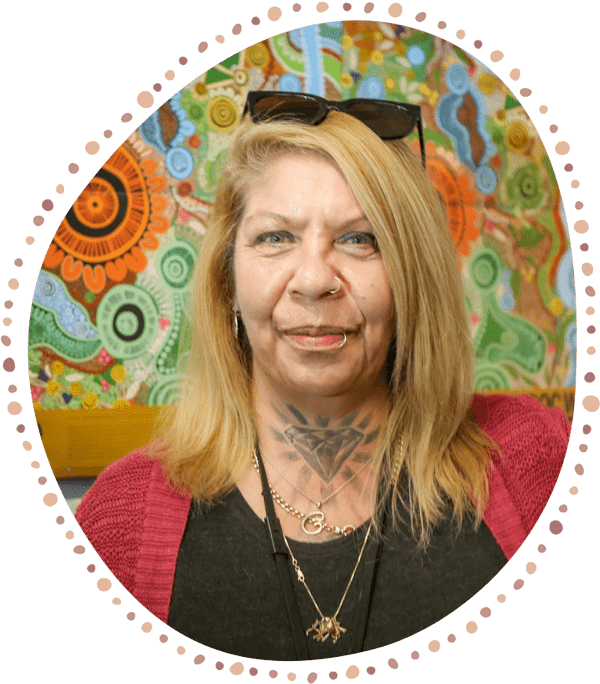
Cultural Planning &
Assessment Principles
These are the general principles of the NDIS Act (with additions by Nganana) that we feel have particular relevance to the Cultural Planning process:
Realising Potential
Supported Choices
Self Determination
Communication Support
Prioritising Relationships
Co-design Approach
Respecting Carers
Support and Contribution
Do you need support?
Our team can help.
At Nganana, we care about providing compassionate care that respects individual needs. If you or a loved one requires support, don’t hesitate to reach out. We’re here to help.
